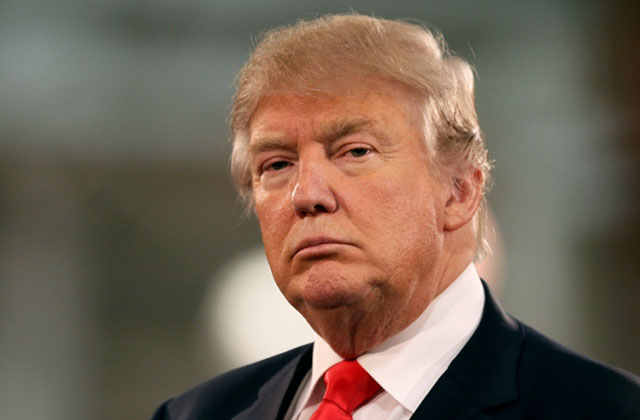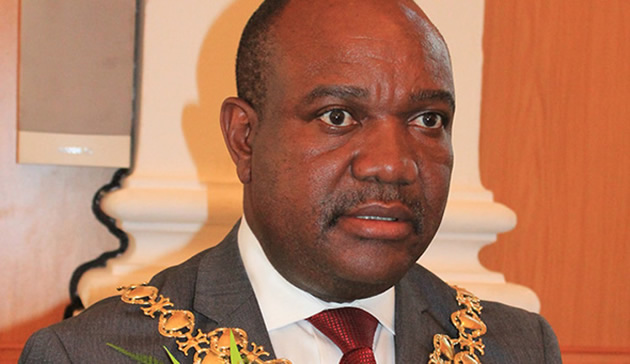Bonn climate summit: what’s at stake?


Donald Trump
Jeffrey Gogo Climate Change
As the world meets for the annual UN climate negotiations beginning in the German city of Bonn today (Monday, Nov. 6), one of the key issues is the contradiction surrounding the US delegation attending the summit: how to negotiate the terms of a treaty that American President Donald Trump has ditched.
Under Fiji’s presidency, which is targeting frank and open discussions free of hidden agendas, negotiators are likely to try to steer attention away from the US fallout by focusing more on matters that move the Paris Agreement forward.
But the presence of the American delegation led by Thomas Shannon, a high-ranking official with the US State Department, will always provide a disappointing backdrop for a meeting keen on engendering stronger climate ambition.
Mr Trump drew worldwide condemnation when on June 1 this year he announced America’s exit from the global climate accord agreed at Paris in 2015, citing obscure economic reasons couched in typically bombastic nationalistic language.
Even though the US withdrawal from the Paris Agreement could take as long as Mr Trump’s entire four-year term of office before taking effect, it is hard to see the other 196 countries party to the UN climate convention taking seriously any contribution from a nation bent on pulling world progress on climate several decades back.
Unless the input signalled intent on boosting the treaty.
The Trump Administration has since made public its intentions on reversing Obama-era interventions tightening energy industry laws on power plants, oil and gas, the transport and construction sectors, to eliminate emissions.
With this one act, the US will effectively default on the promise of the 25-28 percent emission reduction pledge under the Paris Agreement.
Loss and damage summit
The 23rd meeting of the Conference of the Parties (COP23) in Bonn, convening under the auspices of the UN Framework Convention on Climate Change (UNFCCC), the multi-lateral platform that has steered climate talks since 1992, has been billed as a “loss and damage” summit.
Thousands of delegates from nearly 200 countries are expected to meet between November 6-17 to develop guidelines — the touted “rulebook” —on implementing the Paris Agreement on climate change, among other issues.
It is unlikely that COP23 president Fiji, an island nation facing significant risk from climate change, will allow America’s pull-out to overshadow important debate on ironing out the Paris Agreement’s technical issues, themselves deferred to allow for the treaty’s adoption in 2015.
So, in that sense, at Bonn, perhaps only the rulebook could gain greater significance than loss and damage, already a fractious issue.
The term refers to irreversible loss (lives and livelihoods, land etc) and recoverable damage (mainly infrastructure such as roads, buildings, power lines) related to the impact of events likely caused by, or made worse by climate change, including extreme weather and slow onset events, according to experts.
With Africa and the rest of the developing world on the one hand trying to force through the adoption of loss and damage as a key pillar of the climate policy, equal in recognition with adaptation and mitigation, but the final text of the Paris Agreement failed to deliver any guarantees on funding loss and damage.
Obviously, this represents the position of industrialised states, who aren’t keen on taking on further financial responsibility for tackling the climate problem they created.
Having achieved a stand alone listing on the final Paris Agreement document as Article 8, itself a major victory for proponents, the issue for financing loss and damage is certainly far from over.
Rulebook and climate finance
In order to speed up the signing of the Paris accord, delegates meeting for COP21 in France two years ago agreed to defer discussion on the complex technical details of the pact to a later date, with adoption tentatively set for COP24 next year.
Now, these discussions have been ongoing since last year, with the Bonn meeting expected to come up with clear outlines on the draft texts of the Agreement’s rulebook so that it may be ready for adoption during the 2018 climate talks.
The rulebook is expected to provide guidelines on how to keep global temperatures “well below” two degrees Celsius above pre-industrial times and “endeavour to limit” them even more, to 1,5 degrees Celsius.
It will also include issues on transparency, accountability and finance as agreed in the Paris treaty, as well guidelines on how to review each country’s contribution to cutting emissions beginning in 2018, and every five years thereafter, with the aim of taking stronger action.
The idea is to come up with a book of rules that effectively limits carbon emissions from human activity, to the extent that can be tolerated by trees, oceans and soil, the natural sinks of greenhouse gases like carbon dioxide, and to be transparent about it.
Climate finance remains high on the agenda at the Bonn climate talks. Zimbabwe and Africa are looking to the $100 billion per year pledge by rich countries to help ease the climate burden on citizens, already ravaged by a succession of droughts and floods, hunger, famine and disease.
Although the Green Climate Fund (GCF) is making progress, very little of its money has actually been given out to the countries that need it most.
Major asks from Africa to the GCF over the past few years “are to simplify the proposal review process and ensure faster disbursement of funding of approved projects” as well to make clear cut distinctions between what type of finance qualify as grants or loans.
But almost ten years since wealthy countries agreed to the $100 billion, the Green Climate Fund has disbursed just $2,5 billion mostly to multi-lateral institutions and UN agencies, not governments.
Africa will likely demand to see expediency by the GCF to ensure direct access for funding by accredited entities on the continent.
Here, the Infrastructure Development Bank of Zimbabwe has been accredited for this purpose.
Several other issues will be up for discussion at Bonn.
These include gender, land use, human rights and others, all in relation to climate change.
And though the global climate negotiations appear divorced from the ordinary man, outcomes from such meetings often influence government policy on climate interventions that affect everyday people.
God is faithful.










Comments